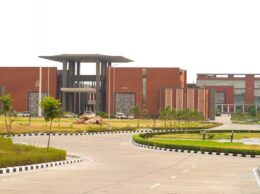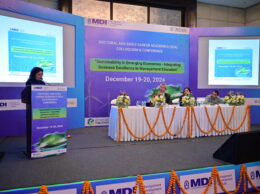London, 24 November 2020: Experts in climate change, strategic planning, digital pedagogy, and student recruitment will meet this week to discuss the role of higher education in climate action and the path forward post-COVID at the 2020 QS APPLE Conference.
Coalescing around the theme New Global Partnerships for Resilience and Climate Action, over 1,300 delegates from around the world will participate in the conference to develop strategy and partnerships for the new decade.
“The theme of the 2020 QS APPLE is vitally important during this period of uncertainty,” said QS’s Senior Vice President, Mr. Ben Sowter. “This year has already seen wildfires make headlines in both the Northern and Southern Hemisphere and extreme weather conditions in countries such as the Philippines. Higher education has a major responsibility to understand these impacts of climate change, and to work collaboratively to overcome them.”
Speakers at QS APPLE 2020 include:
- Honorary Rosy Akbar, Honorary Minister, Ministry of Education, Fiji
- Irina Georgieva Bokova, former Director-General of UNESCO
- Dr Aldrin A. Darilag, Commissioner, Commission on Higher Education, Philippines
- Ailsa Lamont, co-founder, Climate Action Network for International Educators
The conference will represent one of the largest gatherings of higher education leaders, policy makers, and stakeholders in the Asia-Pacific region and QS APPLE’s largest ever delegation in its fifteen-year history.
Held virtually for the first time, Mr. Sowter said that the conference’s new format would widen participation without having a negative impact on carbon emissions.
Changing priorities
Among the topics that will be discussed will be the changing needs and priorities of students, and how higher education providers must address these changes.
According to QS’s proprietary datasets, which capture student sentiment and preferences, climate changes ranks above global terrorism as an immediate area of concern. Equally, over 90 percent of
respondents said they believed universities must do more to address the climate crisis, and almost 98 percent said they preferred studying at an institution whose corporate and social values aligned with theirs.
“Furthermore, in the current circumstances, universities are being impacted by a reduced number of students and are looking towards ways they can overcome barriers without compromising longer term goals,” said Mr. Sowter.
“In setting the theme around both climate action and resilience, QS APPLE aims to platform the many ways universities can work towards addressing those barriers. While we may not be able to provide a cure for COVID-19 ourselves, we hope to provide the setting in which universities can prepare and be ready for that eventuality.”









